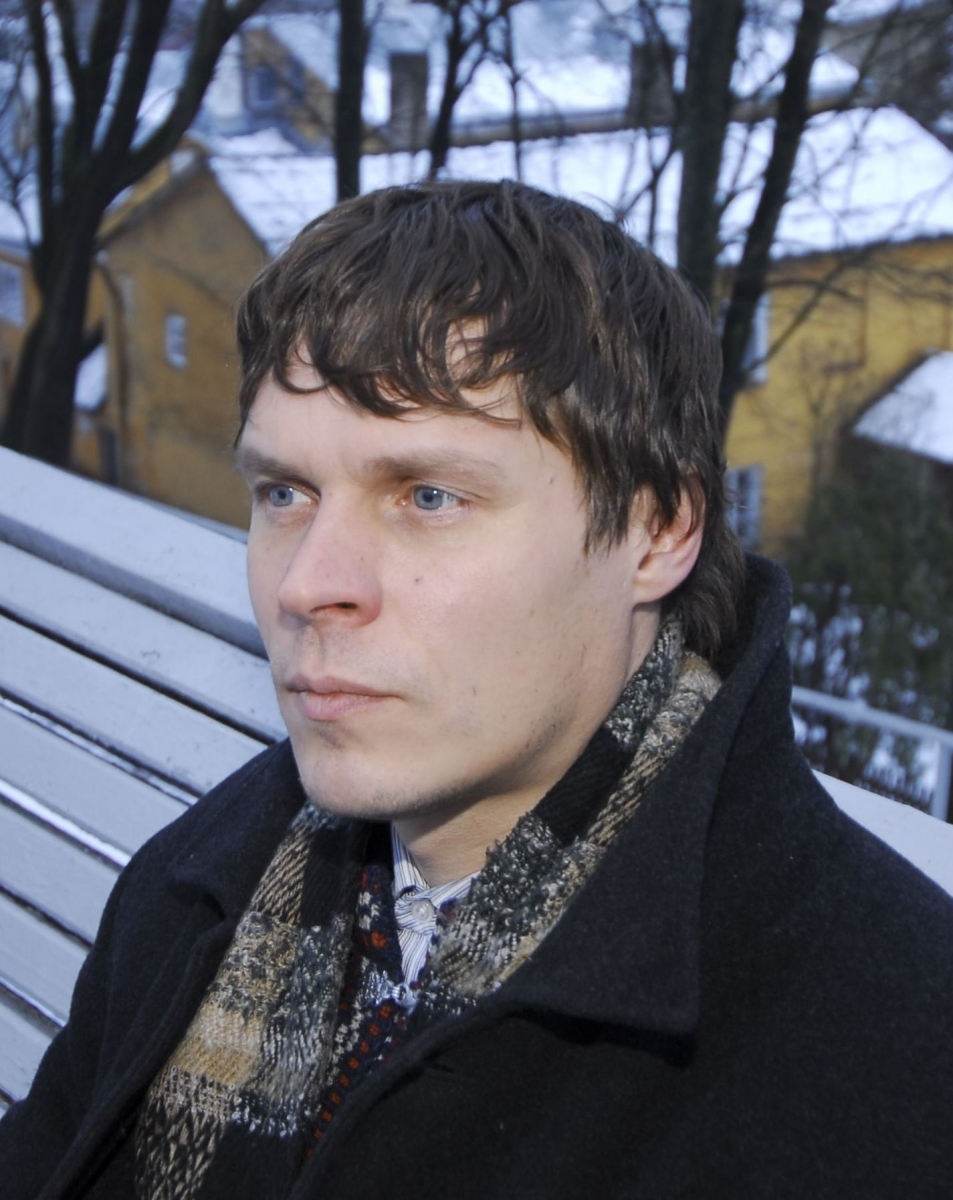
Hasso Krull
Hasso Krull (born 31. I 1964) is an Estonian poet, literary and cultural critic, and translator. Krull entered the Estonian literary scene in the final years of the Soviet Union as a poet, critic, translator and literary theorist. In the first decade of Estonia’s regained independence, he became an important poetry innovator, critic, translator and introducer of 20th century philosophy and literary theory, whose works and interpretations of literature and lore continue to be relevant even today.
Hasso Krull graduated Tallinn Secondary School No. 7 and from 1981-1985, studied Estonian language and literature at Tallinn Pedagogical University. In the early 90s, he studied literary theory in the Estonian Institute of Humanities (in 2005, it became a department of Tallinn University) and remained there as a teacher of the very subject.
Krull entered the Estonian poetry scene in 1986 with his poetry collection Mustvalge (‘Black and White’) that was published under the pseudonym Max Harnoon. The collection is rich in symbolist and decadent allusions and intertextuality. His next collection, Pihlakate meri (‘Sea of Rowan-trees’, 1988) that was this time published under his real name had a similar approach. A powerful summary of Krull’s early works is Luuletused 1987-1991 (‘Poems 1987-1991’, 1993) that is characterized by lack of common theme, fragmentation and polyphony. His references and playful, novel attitude to known cultural texts remain important in his later works as well. It can be said that the other, equally important half of Krull’s works is made up of his sensitive nature observation skills and a simple picture-like quality. His poetry collections from this century, Neli korda neli (‘Four Times Four’, 2009) and Veel ju vist (‘After All Still’, 2012) skillfully combine symmetric structures, Estonian wordplay and unexpected nature scenes.
An important shift occurred in the 2000s when Krull became increasingly immersed in folklore and mythical themes. This shows in essays such as Loomise mõnu ja kiri (‘The Pleasure and Writing of Creation’, 2006) but also in Krull’s first long poem and epic Meeter ja Demeeter (‘Meter and Demeter’, 2004). His greatest mission was to show that the universal creation myth has a fundamental and creative role in all cultures that simply cannot be passively dismissed or forgotten. In this spirit of rehabilitating myths, Krull began reviving the more playful and creative side of Estonian lore both in his poetry and essays. One of the more powerful outcomes of this is the poem Kui kivid olid veel pehmed (‘When Stones Were Still Soft’, 2014).
As a critic, literary scholar and theoretician, Krull had an important role in the translation process that began in the post-Soviet period during which the works of many important poets and philosophers reached Estonia, who had been barred from discussion for 40 years (among others, he translated the works of Bataille, Paul Valéry, Derrida, Cocteau, Deleuze and Guattari, Bourdieu, Žižek, etc). Krull’s essay collections Katkestuse kultuur (‘The Culture of Interruption’, 1996) and Millimallikas (‘Jellyfish’, 2000) were important in this context due to their systematic methodological approach to literature – by offering new approaches, primarily psychoanalytical ones, to study the works of renowned Estonian authors.
Krull’s essays and poetry are not easy to explore separately. His contemplations over the original and the created, the whole and the part, the single and the multitude cross into and inspire his poetry as well, yet without it becoming conceptual. The original connection between systematic thought and immediate sensation, structure and free-form wordplay, are what have made Krull’s works inspiring to many readers.
I. O. (Translated by A. S.)
Books in Estonian
Poems
Max Harnoon, Mustvalge. Tallinn: Eesti Raamat, 1986, 46 lk.
Pihlakate meri. Illustreerinud Indrek Hirv. Tallinn: Eesti Raamat, 1988, 69 lk.
Luuletused 1987-1991. Tallinn: Vagabund, 1993, 90 lk.
Swinburne. Biograafiline sari kahes osas. Tallinn: XXX, 1995, XLI lk.
Trepp. Hüpertekstuaalne luuletus. 1996. – http://www.eki.ee/kodud/krull/trepp.htm
Kaalud. Fotod: Toomas Kalve. Tallinn: Vagabund, 1997, 70 lk.
Jazz. Nelikümmend luuletust. Tallinn: Vagabund, 1998, 54 lk.
Kornukoopia. 100 luuletust. Tallinn: Vagabund, 2001, 179 lk.
Meeter ja Demeeter. Tallinn: Vagabund, 2004, 111 lk.
Talv. Tallinn: Tuum, 2006, 90 lk.
Neli korda neli. Märts 2007 – september 2008. Tallinn: Eesti Keele Sihtasutus, 2009, 75 lk.
Veel ju vist. Mai 2010 – oktoober 2011. Tallinn: Eesti Keele Sihtasutus, 2012, 60 lk.
Kui kivid olid veel pehmed. Tallinn: Eesti Keele Sihtasutus, 2014, 125 lk.
Max Harnoon, Mustvalge: luuletused 1983-1986. Koostaja Asko Künnap; eessõnad: Asko Künnap ja Hasso Krull, kesksõnad: Peeter Laurits; illustratsioonid 1980-1984: Peeter Laurits. Tallinn: Näo Kirik, 2015, 142 lk.
Kandsime redelit kaasas. 40 luuletust. Tartu: Kaksikhammas, 2017, 63 lk.
Euroopa. Tartu: Kaksikhammas, 2018, 96 lk.
Non-fiction
Katkestuse kultuur. Tallinn: Vagabund, 1996, 199 lk.
Millimallikas. Tallinn: Vagabund, 2000, 258 lk.
Loomise mõnu ja kiri. Essee vanarahva kosmoloogiast. Tallinn: Kultuurileht (Loomingu Raamatukogu), 2006, 113 lk. [2. trükk: Tallinn: Kultuurileht, 2006, 108 lk.]
Paljusus ja ainulisus. Tallinn: Eesti Keele Sihtasutus, 2009, 205 lk.
Jumalanna pesa. Mütopoeetiline essee. Tallinn: SA Kultuurileht (Loomingu Raamatukogu), 2012, 70 lk.
Mõistatuse sild. Kirjutisi aastatest 2009-2016. Tartu: Kaksikhammas, 2016, 413 lk.
Collected works
Pesa. Tekstid 2000-2012. Tallinn: Eesti Keele Sihtasutus, 2014, 420 lk. [Essays and articles.]
Muna. tekstid 1987-2012. Tallinn: Eesti Keele Sihtasutus, 2014, 384 lk. [Poems.]



